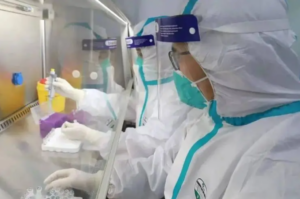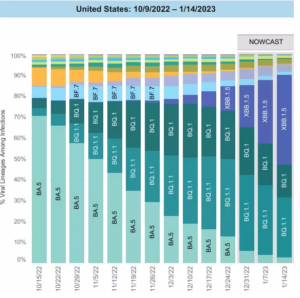
WHO issues updated guidelines for prevention and treatment of new crowns, recommends shorter isolation times for patients with new crowns
UNITED NATIONS NEWS, Jan. 13 — The World Health Organization on Jan. 13 released updated guidelines for the prevention and treatment of neo-crown, covering recommendations for wearing masks in community settings, neo-crown treatment and clinical management.
WHO recommends that patients with neo-crown be released from quarantine early if they test negative in a rapid antigen test. For symptomatic patients, in the absence of testing, the new guidelines recommend 10 days of isolation from the date of symptom onset. Previously, the WHO recommendation was that a patient could be released from isolation 10 days after the onset of symptoms, plus an additional 3 days after the symptoms had resolved. For patients who test positive but do not have any sign abnormalities or symptoms, WHO now recommends a 5-day isolation without testing, compared to the previous recommendation of 10 days.
WHO continues to recommend that the public use masks in specific situations; given the current global spread of the new coronavirus, this update recommends that masks be used regardless of the local prevalence of the new coronavirus. WHO recommends that masks be worn by people who have recently been exposed to neo-coronavirus; people who have or suspect they have neo-coronavirus; people at high risk of developing severe neo-coronavirus; and people in crowded, enclosed or poorly ventilated spaces. Previous WHO recommendations were based on the epidemiology of new coronaviruses. Similar to the previous recommendations, WHO suggests that masks may be worn in other situations based on risk assessment. Factors to consider include local epidemiological trends and rising hospitalization rates, vaccination coverage and immunization levels in the community, and the environment people are in.
WHO continues to strongly recommend the use of nematovir tablets-ritonavir (brand name “Paxlovid”). Pregnant or breastfeeding women with non-severe new coronary artery disease should consult their physician to determine if they should take this drug, as it “may be beneficial” and no adverse events have been reported.
WHO also reviewed the evidence for the treatment of two other drugs, sotovumab and casirimab-idevumab, and continues to strongly advise against their use in the treatment of neostriatal. Against the currently prevalent viral variants, these monoclonal antibody drugs lack activity or have diminished activity.
Currently, there are six proven effective treatment options for patients with neointimal, three of which prevent hospitalization in high-risk populations and three of which save the lives of critically ill or critically ill patients. Globally, the availability of drugs other than corticosteroids remains unsatisfactory.


Average Rating